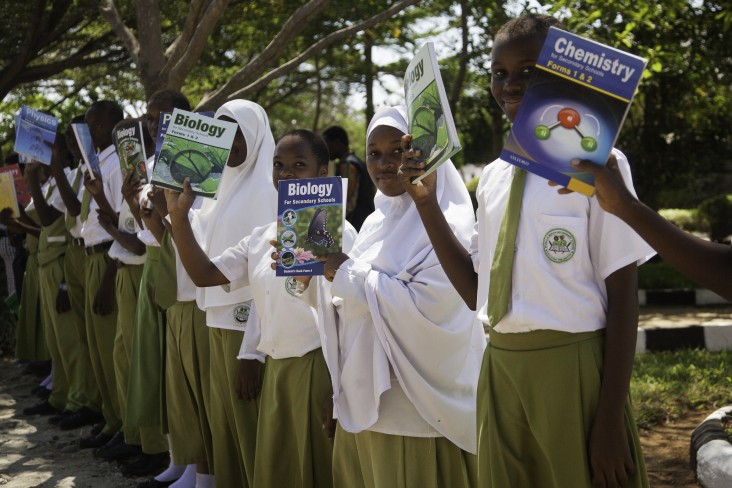Speeches Shim

Youth under 15 years of age comprise 45 percent of Tanzania’s population of over 53 million people (UN Population Division, 2015). At the current growth rate, Tanzania’s population is projected to reach 70 million by 2025. Despite these numbers, women and youth are among the most marginalized and underutilized Tanzanian citizens.
Within this context, USAID works to enable gender equality and empower women and youth, as the two groups play a key role in the progress and growth of Tanzania. Tanzanian females and youth must have greater access to and control over resources, opportunities, and decision-making power in order to sustainably reduce extreme poverty, build healthy communities, and promote inclusive growth.
Challenges
The Government of Tanzania has adopted policies that advance gender equality and youth inclusion in a supportive enabling environment. The legal and regulatory framework and the sector-specific policies of government ministries and independent departments, however, have yet to be aligned with these policies. Furthermore, amending the Age of Marriage Act to increase the minimum age for females to marry to 18 years remains a critical point of action. There is also a need for well-trained parliamentarians, policy analysts, researchers, and civil society organizations in order to ensure successful female- and youth-positive legal reforms and policies.
Impacts
USAID integrates gender equality, women’s empowerment, and youth inclusion across all of its activities, enabling public policy dialogue and advocacy in support of gender and youth-positive policies and services. Recent highlights:
- USAID launched the Waache Wasome (“Let them Learn”) project in 2017, which is empowering out-of-school girls to create and achieve goals for their future and address the social norms and economic barriers that constrain their ability to remain and excel in school.
- USAID’s work with Women in Law and Development in Africa has provided legal aid and gender-based violence services for 18,470 citizens, as well as improved referral systems for gender-based violence and violence against children in three districts.
- USAID also supported the Women’s Leadership and Political Participation Project implemented by the UN Fund for Women to increase female participation in political parties and electoral processes. These efforts trained over 1,200 women, youth, and people with disabilities in civic leadership, 713 of which ran for office and 72 of which were nominated as candidates in 2015.
- Ongoing and recently launched economic growth activities have reinforced a positive enabling environment whereby women and youth are able to pursue productive livelihoods, find employment in the agriculture and horticulture sectors, build entrepreneurial skills, and access financing and business development services.
- Through the Sauti (“Voices”) activity, supported by USAID under the U.S. President’s Emergency Plan for AIDS Relief, representatives from vulnerable populations at greatest risk of HIV established WhatsApp groups to raise awareness and create demand for medical services among youth, including essential family planning and HIV testing and counseling.
RELATED FACT SHEETS
STORIES
Three Ways Tanzania Addresses Violence against Women and Children to End HIV/AIDS
The Seed Multiplier: Sowing Seeds of Self Reliance
Changing the Face of Clean Water in Tanzania
“We are the Future” - Empowering Girls in Tanzania to Realize Their Dreams
Water Management: Helping Women in Rural Tanzania Find Their Voice
Strengthening Women's Land Tenure Rights in Matembo
Celebrating Empowered, Independent Women!
Beekeeping Empowers Maasai Women in Northern Tanzania
Land Rights Mark a New Frontier for Tanzania's Rural Women


Comment
Make a general inquiry or suggest an improvement.